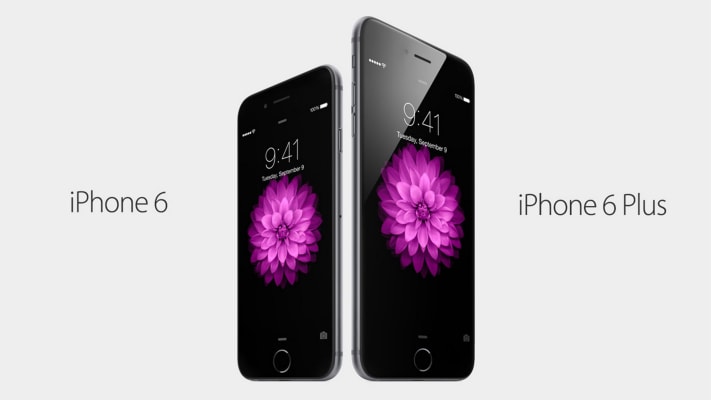http://www.nbcnews.com/
It's official: Apple has released a 5.5-inch iPhone. Officially called the iPhone 6 Plus, the device is Apple's first entry into the phone-tablet hybrid (a.k.a. "phablet") market. It also released the 4.7-inch iPhone 6 and the Apple Watch at an event in Cupertino, California that was slightly marred by problems with its livestream.
A few of the other features of the iPhone 6 and iPhone 6 Plus:
A faster Apple A8 processor, which Apple claims is 25 percent faster than the previous processor.
A better battery life than the iPhone 5s.
"Ion-strengthened" Retina HD resolution displays.
The iPhone 6 is only 6.8 millimeters thick and the iPhone 6 Plus is 7.1 millimeters — both thinner than the 7.6-millimeter iPhone 5s.
An improved FaceTime camera capable of HDR photo and video, and burst mode for selfies.
A new NFC payment system called Apple Pay that lets people pay with their iPhone 6 and iPhone 6 Plus.
The iPhone 6 will start at $199 with a two-year contract, while the iPhone 6 Plus will start at $299. Pre-orders begin on September 12, with phones actually shipping on September 19.
Why did Apple go big? In three years, phablets will outsell both laptops and tablets, according to a report from market research firm IDC. Samsung strengthened its position in the phablet market last week by releasing the Samsung Galaxy Note 4 and the Samsung Galaxy Note Edge, which comes equipped with a curved screen.
The company separately introduced Apple Watch, its much-anticipated foray into the wearables market.
Apple Pay Makes Your iPhone Your Credit Card
Apple introduced a new wireless payment system called Apple Pay on Tuesday that comes with every iPhone 6 and 6 plus. You take a picture of your card, and it's added to your Passbook, then you can make a purchase by putting it up to a special point-of-service system and "sign" with the fingerprint sensor in the home button. It uses near-field communication, or NFC, which has been a part of other wireless payment systems in the past — but none of those services have quite gone mainstream. But Apple is rolling out with major partners: Macy's, Bloomingdales, Walgreens, Subway, McDonalds (even drive through), Whole Foods, and of course Apple's own retail stores. Online merchants will also be able to use the system, enabling one-touch buying at places like Target. Whether smaller merchants will find it convenient to add a new machine to their checkout process is another question, and the details of fees and limitations are similarly unknown.



No comments:
Post a Comment